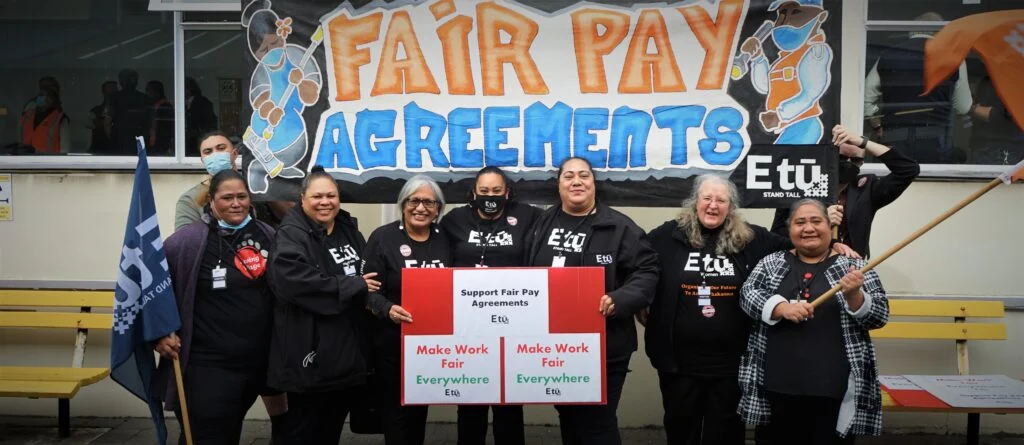Labour’s 2017 election manifesto commitment to introduce industry-wide Fair Pay Agreements was, arguably, the party’s most radical policy. The idea was to set national terms and conditions for groups of unorganised, low-paid workers – cleaners, security guards and the like – which would put an end to the race to the bottom by the employers.
All the way through Labour’s two terms in office I have been sceptical about whether any FPAs would be implemented. Currently, there is only one application for an FPA that has reached the stage of bargaining – this is for bus and coach drivers and cleaners – and I have no doubt the employer side will run down the clock to make sure that the remaining steps to an enforceable agreement will not be completed by the general election date. National have vowed to repeal the Fair Pay Agreements Act. If recent opinion polls are a guide to the election outcome, Fair Pay Agreements will be gone.
The truth is that the Fair Pay Agreements promise has never been a priority for Labour. My scepticism started when Labour announced the beginning of work of FPAs in June 2018. The government appointed a team comprising chief execs and a couple of union representatives – one being Richard Wagstaff of the CTU. The team was to be led by none other than Jim Bolger, former National Party prime minister. FPA work was kicked into the long grass. It took until November 2022 for Labour to pass the Fair Pay Agreements Act, and took until June this year for the necessary regulations sitting under the Act to be passed.
However, there is some good news on bus services. In August, Labour at last repealed the Public Transport Operating Model that has compelled local councils to contract out transport services. The PTOM was introduced by National in 2011. It has led to poor services and a race to the bottom on drivers’ pay and conditions. The new replacement law allows councils to run services directly, increase bus drivers’ pay and recruit migrant workers. National and ACT voted against the change.
Banner image credit: E Tū Union









